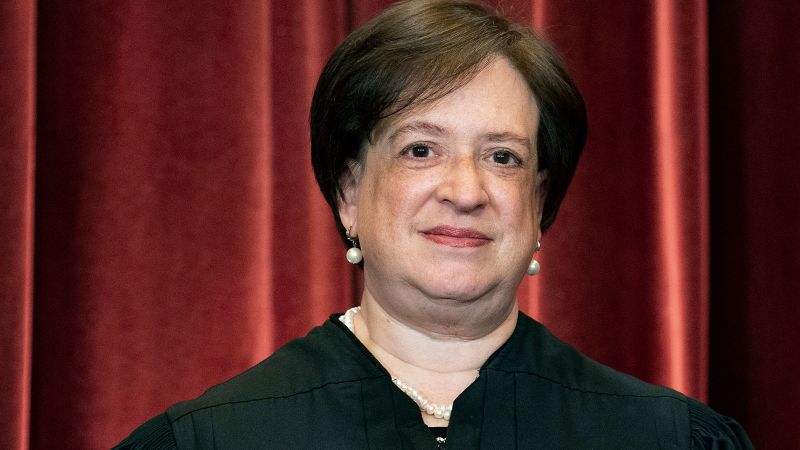In a pivotal Supreme Court case regarding former President Donald Trump’s potential claim of immunity in a federal election subversion case, Justice Elena Kagan brought up an intriguing hypothetical scenario during the proceedings. She posed the question of how far presidential immunity could extend, using the extreme example of a military coup orchestrated by an ex-president. This line of questioning sheds light on the potential implications of granting unlimited immunity to former presidents, especially in cases involving significant threats to democracy and the rule of law.
The case at hand revolves around whether Trump can invoke immunity as a shield against legal challenges related to his alleged attempts to subvert the 2020 presidential election. Kagan’s probing on the limits of presidential immunity underscores the gravity of the situation and the need to carefully consider the potential consequences of such a ruling. The hypothetical scenario she presented serves as a thought experiment to explore the boundaries of presidential powers and the responsibilities that come with holding that office.
As Trump’s attorney faced Kagan’s pointed questions, the issue of presidential immunity took center stage in the courtroom, prompting a critical examination of the legal principles and precedents that govern such matters. The potential implications of granting immunity to a former president in cases of election subversion raise profound concerns about the stability of the democratic process and the accountability of those in positions of power. Kagan’s line of questioning highlights the need for a nuanced and thoughtful approach to interpreting and applying the law in cases of such magnitude and complexity.
The Supreme Court’s deliberations on the issue of presidential immunity in the context of election subversion carry significant implications for the rule of law and the functioning of democracy. By raising the specter of a military coup orchestrated by a former president, Justice Kagan forces a reckoning with the limits of executive power and the potential dangers of unchecked presidential authority. The hypothetical scenario serves as a stark reminder of the fragility of democratic institutions and the crucial role of legal safeguards in preserving the integrity of the electoral process.
As the legal arguments unfold in the Supreme Court case, the justices are faced with a weighty decision that could have far-reaching consequences for the future of American democracy. The challenge of balancing the need for accountability and justice with the principles of presidential immunity presents a complex and contentious dilemma that requires careful consideration and deliberation. Justice Kagan’s probing questions serve as a reminder of the profound stakes involved in the case and the importance of upholding the rule of law in the face of unprecedented challenges.
In the end, the Supreme Court’s ruling on the issue of presidential immunity in the federal election subversion case will shape the course of American politics and governance for years to come. The court’s decision will not only impact the legal standing of former presidents but also set a precedent for how the rule of law is upheld in cases of potential threats to the democratic process. Justice Kagan’s hypothetical scenario raises important questions about the limits of presidential power and the need for accountability in the highest echelons of government, underscoring the critical role of the judiciary in safeguarding the principles of democracy and justice.


